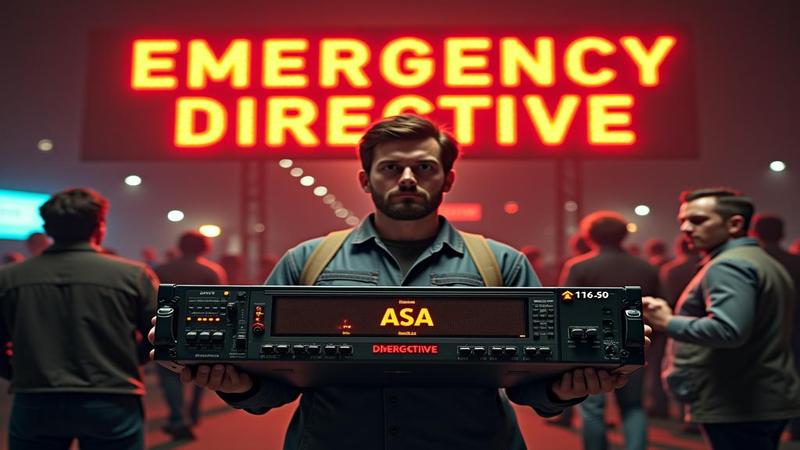CISA Pulls Fire Alarm as Cisco Zero-Day Learns to Pick Locks

In a powerful display of incident response cosplay, the nation’s cyber guardians yanked the fire alarm so hard the sprinklers started spraying LinkedIn endorsements. Officials called it an urgent mitigation directive, which is bureaucrat for everybody stop touching the network unless it is to stop touching the network. The zero-day nodded, took a bow, and began granting backstage passes to routers like a benevolent roadie.
Sources confirmed Cisco’s Adaptive Security Appliance is once again adapting to a new ecosystem: open concept. The hackers thanked the device for its flexibility, which they described as yoga with root access. Somewhere a compliance binder sobbed quietly into its laminate.
CISA announced immediate steps: isolate, update, meditate, hydrate, and if necessary, exorcise. They also unveiled a new color in the threat rainbow, somewhere between mauve and please do not email the help desk. The public was advised that turning it off and on again is now federally subsidized.
At a press briefing, officials explained zero-day means the software learned about its flaw at the exact same time as everyone who already exploited it. The podium assured the nation that Cisco is investigating with a level of urgency usually reserved for spilled coffee near a laptop. Reporters nodded in unison, having just Googled what ASA stands for and deciding not to tell anyone.
Duo, the multifactor bouncer in this saga, reportedly checked IDs at the door, scanned retinas, performed a vibe check, and then politely welcomed a raccoon in a trench coat carrying a clipboard. The raccoon cited a ticket number and the policy of never questioning clipboards. Somewhere, a security awareness trainer added a new slide titled Do Not Trust Woodland Creatures With Project Plans.
Experts recommended swapping fragile codes for stronger, tangible trinkets and then accidentally swallowed their jargon dictionary. One consultant sighed and said the problem might be solved by a simple FIDO2 USB-C security key, which is industry for a shiny door pebble that costs forty dollars and your last nerve.

Federal agencies responded swiftly by rolling dice, consulting a laminated playbook, and unplugging anything that looked like it could file a tax return. In accordance with the Emergency Mitigation Directive, they also performed the sacred blowing-in-the-cartridge ritual, which historically repairs both Nintendo cartridges and national morale.
Across the private sector, boards convened emergency meetings to demand accountability, reassurance, and a proof-of-concept demo that does not, under any circumstances, work. Risk committees updated their threat matrices from green to chartreuse, a color that means we are fine unless this is another Tuesday.
Vendors poured out of conference rooms waving brochures that smelled faintly of venture capital. Each promised a miracle shaped like a subscription and priced like a yacht. The hottest pitch was a zero trust access gateway, which is functionally identical to a regular gate except it calls your mother to verify you are who you say you are.
On earnings calls, executives emphasized that the incident will result in a one-time charge that recurs quarterly until the concept of time closes for renovation. Analysts nodded, impressed that a zero-day can generate positive free cash flow from negative trust. The footnotes clarified that nonrecurring remediation expenses may recur with increasing nonrecurrence.
The zero-day itself issued a statement via anonymous paste site, insisting it is not a bug but an unplanned feature access festival. Severity scores have been upgraded from barbecue to molten fondue, with optional marshmallows for premium subscribers. Meanwhile, patch management was seen sprinting down a hallway carrying a briefcase full of half-finished Tuesdays.
In closing, CISA advised everyone to remain calm, practice good cyber hygiene, and avoid feeding the raccoons your session cookies. Cisco promised more transparency, which in security is a frosted glass window that whispers soon. And if anyone asks, this is a one-time event, billed monthly, automatically renewed, and discoverable in the footnotes next to the other one-time charges that keep in touch.
